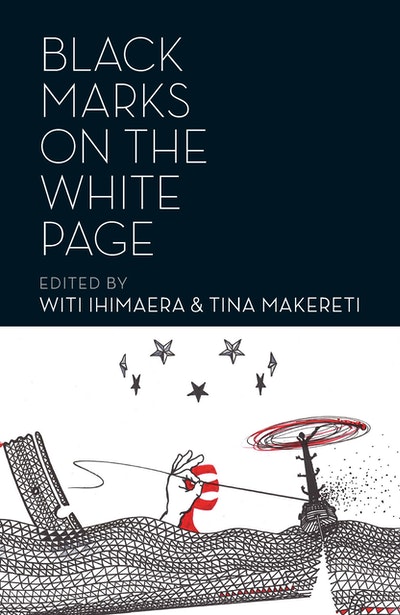- Published: 3 July 2017
- ISBN: 9780143770305
- Imprint: RHNZ Adult ebooks
- Format: EBook
- Pages: 352
Black Marks on the White Page
- Published: 3 July 2017
- ISBN: 9780143770305
- Imprint: RHNZ Adult ebooks
- Format: EBook
- Pages: 352
Black Marks on the White Page showcases a multiplicity of voices and genres. It is, by turns, startling, beautiful, funny, challenging, forceful and delicate - a talanoa well worth joining.
Elizabeth Heritage, NZ Listener
This is a collection to be savoured, not read in one sitting. . . . The stories are interspersed with artworks from nine Pacific artists, which add a nice touch to the breathtaking stories. . . . this is an important collection of 21st century writing, showing a more sophisticated form and a coming of age . . . This is a hard-cover volume that can sit proudly next to foreign collections on any bookshelf, to be read over the years.
Linda Thompson, Bay of Plenty Times
When two of New Zealand’s finest writers of Maori descent combine their talents to select new writing from around the Pacific, there are high expectations for the results. Such hopes are amply fulfilled by this invigorating selection of mainly) new (mainly) prose, along with a small portfolio of visual artworks. . . . an engrossing read.
Paul Little, North and South
The editors have chosen writing ranging from 2007 to 2017, based on how they will help expand our world "aesthetically, politically, linguistically, and culturally". And this they do as each writer works with his or her own preoccupations, whether they be the dire contemporary state of the world, the role and appearance of art, or a fixation on languages, linguistics and semantics. . . . Like the title, these marks here inscribed upon the blank page fill in histories and storytelling from a multiplicity of fresh and uplifting perspectives.
Jessie Neilson, Otago Daily Times
In summary, every example of "story-telling" included in this anthology is more or less distinctive and fresh . . . it is a set of stories pushing against the boundaries of the dominant language, as if against the boundaries of the dominant culture, that makes this collection exceptional.
David Eggleton, NZ Books






